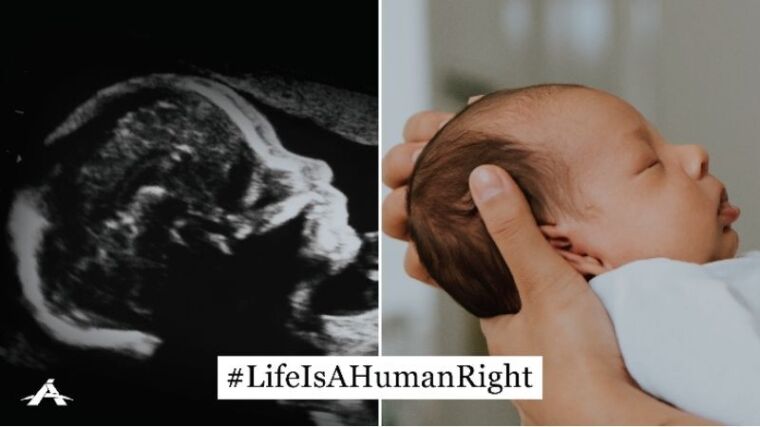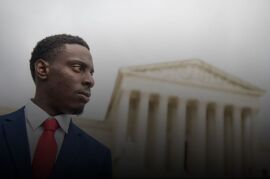This Case May Be the End of Roe vs. Wade

You may have heard the big news: a case that may result in the overturning of Roe v. Wade is at the U.S. Supreme Court.
If you’ve followed the pro-life movement at all, you know just how huge that is! For nearly 50 years, Roe v. Wade has been the law of the land. And as a result, over 62 million children have lost their lives to abortion. And millions of women have suffered trauma at the hands of abortionists.
And, thanks to a Mississippi law, that just might happen soon.

Mississippi’s Law Protects Unborn Lives
In 2018, Mississippi passed the Gestational Age Act, a law that protects unborn life by limiting abortions after 15 weeks in gestational age, permitting them only in medical emergencies or for severe fetal abnormality. This law recognizes that life is a human right—it protects both the lives of unborn children and their mothers, and the integrity of the medical profession.
At 15 weeks, unborn babies have already had a heartbeat for weeks. They can move around, kick, and hiccup. But they can also likely sense pain. Just imagine what an unborn baby at 15 weeks gestation or later goes through when she is crushed or torn apart during an abortion. It’s brutal, disgusting, and heart-wrenching.
How can we allow such a barbaric practice in our society?
But Mississippi’s law is not just about protecting these precious unborn children. It’s also about protecting their mothers. We know that women face a higher risk of needing a hysterectomy, other reparative surgery, or a blood transfusion in abortions performed after 15 weeks. We also know that, as a woman’s pregnancy progresses, she also faces an exponentially higher risk of dying from an abortion.
Mississippi’s law is common sense. It’s also aligned with what most Americans think about abortion. Polling data shows that the majority of Americans think abortions should be limited after the first trimester.
Even more importantly, Mississippi’s law is based on the overwhelming scientific evidence that unborn babies are alive. They can also feel pain as early as 12 weeks gestation. The body of evidence for both has grown since Roe was decided in 1973.
But predictably, abortion activists have labeled it as “extreme.” The Center for Reproductive Rights—a radical pro-abortion group—is arguing against the law at the Supreme Court.
What Will Happen if Roe is Overturned?
Last week, the Court heard oral arguments in the case Dobbs v. Jackson Women’s Health Organization.
Mississippi’s law highlights a conflict between the Supreme Court’s ruling in Roe and the Court’s repeated affirmation that states have an important interest in protecting “vulnerable and innocent life” from the moment of conception.
Roe v. Wade nationalized abortion—preventing states from making commonsense regulations on abortion, against the wishes and values of their citizens.
If the Supreme Court decides that Mississippi’s law is constitutional, it could upend Roe and free states to pass laws that protect life.
While we’re waiting for a decision in this monumental case, we at Alliance Defending Freedom are continuing to fight for the pro-life cause in courtrooms across the country. We will not rest until Roe is overturned. Are you with us?
Please consider giving to our efforts to encourage the Supreme Court to overturn Roe.






